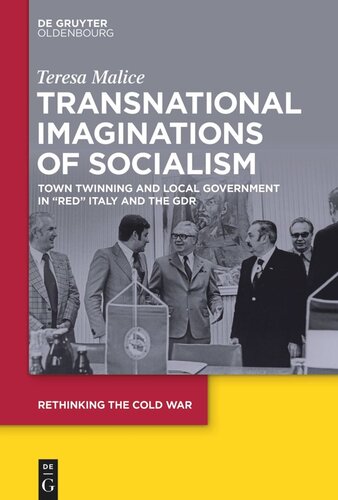

Most ebook files are in PDF format, so you can easily read them using various software such as Foxit Reader or directly on the Google Chrome browser.
Some ebook files are released by publishers in other formats such as .awz, .mobi, .epub, .fb2, etc. You may need to install specific software to read these formats on mobile/PC, such as Calibre.
Please read the tutorial at this link: https://ebookbell.com/faq
We offer FREE conversion to the popular formats you request; however, this may take some time. Therefore, right after payment, please email us, and we will try to provide the service as quickly as possible.
For some exceptional file formats or broken links (if any), please refrain from opening any disputes. Instead, email us first, and we will try to assist within a maximum of 6 hours.
EbookBell Team

4.8
74 reviewsTown twinning refers to the postwar phenomenon of administrative exchange between analogous municipalities. Cold War-related research has mostly interpreted it as an instrument to pursue European integration, or to solidify détente "from below". However, municipalities were not only administrative, neutral actors, but also bearers of political content. This is particularly visible in the case of Italian towns located in the Western bloc, guided by socialist-oriented administrations, and their "twin" counterparts in the German Democratic Republic.
This volume explores the connections initiated by such towns in the 1960s-1970s, focusing on socialist-specific conceptions which fueled the policies implemented by "red" municipalities, in managing local economies and social policies, but also in maintaining a lively and interconnected transnational microsociability among grassroots activists. Despite the increasing ideological divergences between Eastern and Western communists, and between Italian democratic communists and the more dogmatic and repressive, strictly pro-Soviet ones in the GDR, communication continued to flourish on the local level. The book explores what still linked the two worlds together, the "bright side of socialism": in this case, a common symbolism related to the past, practical exchanges in the present dimension, and a shared future imagination and conception of the town on the basis of a socialist horizon, built around welfare and services for citizens and workers.